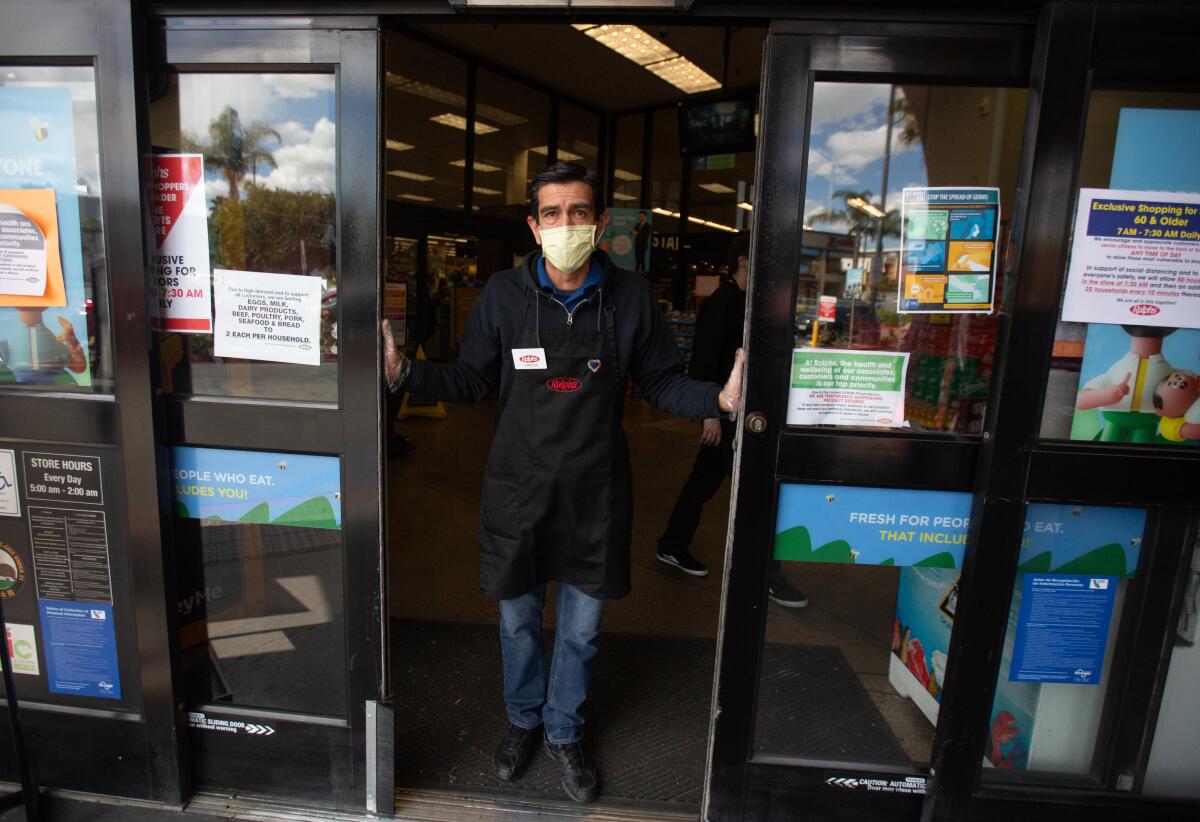Letters to the Editor: We call them ‘essential workers,’ but businesses call them ‘expendable’

- Share via
To the editor: An editorial directly addressing what Labor Day is supposed to be about is a welcome silver lining to the pandemic (or fire, or heat, or election) cloud of despair that has hovered over us, seemingly forever.
But maybe the laudable hope of awakening the nation to the value of “essential workers” should start with renaming the reality they have always faced.
The hardest-working, lowest-paid people who indeed do the essential and thankless work of society are more accurately described as “expendable workers,” easily replaced by others equally desperate to get by and thus not worth paying a living wage, let alone protecting from infection.
May this Labor Day be a turning point toward a more just and humane future.
John B. Phillips, Camarillo
..
To the editor: This Times editorial deserves quoting: “In a more humane system we would pay the people who do the essential work what those jobs are worth to society rather than treating them like just another cost in a business plan.”
Even before the coronavirus, Americans were enduring financial insecurity. The coronavirus greatly worsened the situation by throwing millions out of work, but workers in some job sectors, like food harvesting, have long been underpaid.
And, over the last few decades, we have witnessed the growth of automation, offshoring, part-time work and employees pressed to become private contractors.
A major cause of these problems lies in the increasing flow of wealth to the top, which then leads to vast political and economic power. The people who have this wealth do not want to share by paying commensurate taxes. They do not desire to fund government services for everyday Americans, but they do manage to direct government funds toward their activities.
If we are to create a more sustainable and humane society, changing this dynamic is essential.
Grace Bertalot, Anaheim
More to Read
A cure for the common opinion
Get thought-provoking perspectives with our weekly newsletter.
You may occasionally receive promotional content from the Los Angeles Times.









